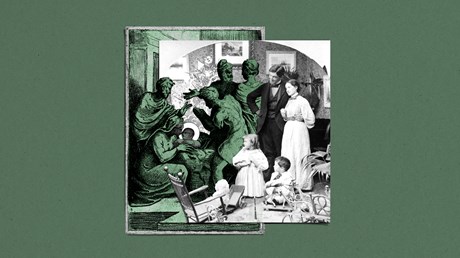Christmas Grafts Us into God’s Nontraditional Family
After losing my father as a child, I learned to see the Incarnation as my true lineage.

As a kid, I loved combing through the Christmas cards my family received each year. In the days before social media, those annual pictures in the mailbox helped me feel connected to long-distance friends and family.
After my father died, however, Christmas cards served as a reminder of what I’d lost. Photos of smiling, intact families and their cheerful greetings were like salt in a wound. Holidays are always hard for the bereaved. But for me, they added a layer of shame to the grief I carried year-round. As a hurting child, I intuited: My siblings and I were no longer Christmas card material, because our family was no longer whole. For that reason, we never sent another holiday greeting after my father’s death.
Our cultural fixation with the nuclear family takes on a religious tone around Christmas. We conflate Mary, Joseph, and Jesus nestled in the crèche with our own sentimental notions of family togetherness. We invite families up to light the Advent candles in church. We gather around extended family tables to celebrate. In all the hype, it’s easy to assume that “peace on earth” comes exclusively in the form of a whole and healthy family in front of a Christmas tree.
To be clear, family is a gift from God worth celebrating and supporting. God created the family in part to teach us how to love and be loved. The world needs to see families doing the hard and holy work of togetherness. But as New Testament scholar Esau McCaulley writes, “Our image of family at Christmas—well-decorated, wealthy, happy, and intact—actually sits uneasily beside the gospel of the first [Christmas].”
Jesus’ own family was not exactly Christmas card material. His first “Christmas” …
